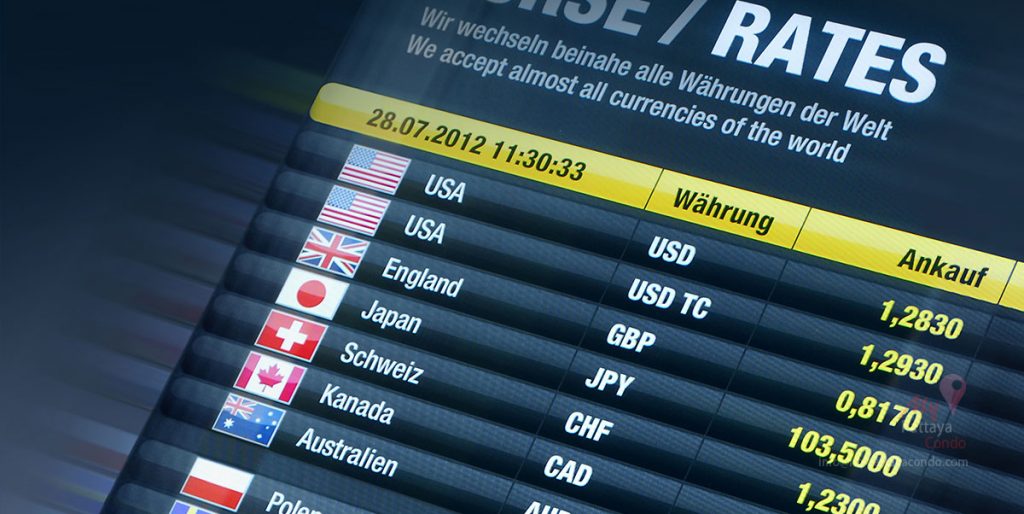The quick guide to purchasing freehold condo in Pattaya

Purchasing a condominium in Pattaya is a straightforward method because Thai authorities do allow international buyers to own condominiums in Pattaya freehold with only one limitation.
A property that covers the land on which the condo building will be built, the quota of foreign purchase in any condominium building is limited to 49% of the total saleable area of any condo building at any one time because foreigners may not own land freehold for private residential use in Pattaya and Thailand.
Note that the 49% quota is determined based on the surface of the individual sellable area, not the number of condo units. If you are buying a condominium in Pattaya, the 49% foreign ownership quota is not a problem as Thai buyers are usually the primary consumers.
Foreigners who invest 40 million Baht in Thailand may be entitled to own one Rai of private land freehold to build a private residence.
Nevertheless, if you are purchasing a condominium in Pattaya, there are more foreign buyers than the 49% foreign quota may accommodate. If you wish to buy a condominium freehold in a resort area in Pattaya, you’ll have no option other than to purchase off plan at the time of the project launch if you want a guarantee your unit will be in the foreign quota.
If you’re buying a completed condo, check the proportion of foreign ownership in this building before paying a deposit to your seller or agent. Information about the level of foreign ownership in a particular condominium can be requested at the condominium juristic person office in the condo.
International buyers must fulfil the following legal requirements to be eligible to purchase a condo:
Ability to enter Thailand legally; and Evidence that the funds handled to buy the condominium was wired from abroad in foreign currency. Without such proof of transfer, the Land Office will not allow the transfer of ownership of a condo to an international buyer.
Foreigners who have residential status (Obtain a Blue Resident Book or in Thai Thabien Baan) are excused from the obligation to send foreign currency from abroad. Legal residents are also allowed to buy in baht and even to obtain money from a Thai bank to finance their purchase.
When transferring foreign currency from abroad, you should observe the following rules. The foreign currency:
1. must be an amount equivalent to the acquisition price of the condominium, or the condo evaluation value
and
2. remitted from overseas
and
3. brought into Thailand
and
4. exchanged in Thailand
and
5. Can be from a bank account in the name of the foreign purchaser, or wired to an account in Thailand in the name of the foreign buyer.
When asking your bank to begin the transfer, ask them to add the following details: Example: Transfer for purchasing condominium unit “C105” at “The Trust Residence condominium”. The number of the unit and the name of the condo are not necessary but advised.
Documents the foreign condo buyer will have to use to prove the transfer of the purchase money in foreign currency is called the Foreign Exchange Transaction
Form151 (FETF) and replaces the Tor. Tor. Sam.
If you wire the foreign currency directly into the bank account of the developer, the developer will request that its bank issue an FETF for each transfer. The same will happen if you transfer the money via your lawyer’s account with the lawyer being responsible for applying on your behalf for the FETF. If you transfer the foreign currency into your personal account in Thailand, you will have to ask for the FETF yourself.
Nowadays, minimum amounts are no longer applicable when purchasing condominium If you have made transfers below the amount of USD 20,000 per transfer you may request your bank to issue a Foreign Currency Exchange Advice for any small amounts (including small monthly instalments of 500 or 1000 Euro).
If you lose your FETF or your Foreign Currency Exchange Advice before the transaction at the Land Department, you may request that the bank re-issue duplicates, as long as you still have the evidence of the purchase. In general, the bank will require that you declare the loss of the original documents with the police before issuing duplicates.
This process will take from 10 days to a month or more if the records are older than two years, and the bank might charge you for the service.
If you lose your copy of the FETF after the transfer of the condominium at the Land Office, you may go to the Land Office anytime and request a copy of the FETF that the Land Department will have on file. Here again, you will be asked to pay a small government fee for the service. The Bank of Thailand has issued the Notice of the Competent Officer to further relax foreign exchange regulations in order to increase the flexibility of Thai businesses in managing their foreign exchange risks which you can visit the full information here.
What to avoid when transferring your money:
1. Do not exchange your currency for Thai baht on the international market, because you will not qualify to purchase a condominium freehold.
2. If you are going to transfer directly to the account of the developer in Pattaya or through the lawyers account, do not send the money from an account that’s not under your name (company account, pension fund, trust fund, etc.). Your name simply appears at one end of the transaction or the other.
3. If you’re married, you have two options when buying the condominium. Firstly, you may wish to purchase the condo in co-ownership with your foreign or Thai spouse. You could do this even if the name of your spouse isn’t included in the original purchase and sale agreement executed with the developer, as long as you decide before the registration of the transfer at the Land Office.
In cases where couples are both foreigners, it is not necessarily to be transferred from a joint account under both names. However, if you transfer from your personal account, you’ll need to request that your bank adds the remark on the transfer made on your behalf and your spouse. To register the condominium under both names, you’ll need to produce a certified copy of your marriage certificate which must also be translated.
Note that if you are married,
you need to declare your status to the developer, or to your lawyer, or to the government official at the time of the purchase. Forgetting to provide this information before the registration of the transaction at the Land Department to avoid the formalities mentioned above is not a good idea, because failure to disclose information is deemed a false statement to a government official, which is a criminal offence. If you’d rather not share the ownership of the condominium with your spouse, then you must require your spouse to sign a form authorising you to purchase the condo solely in your name.
